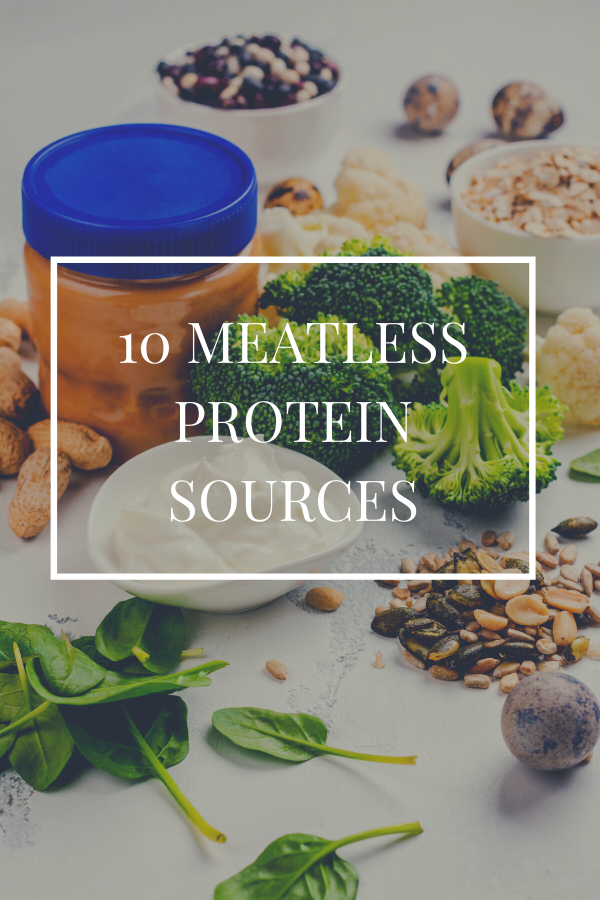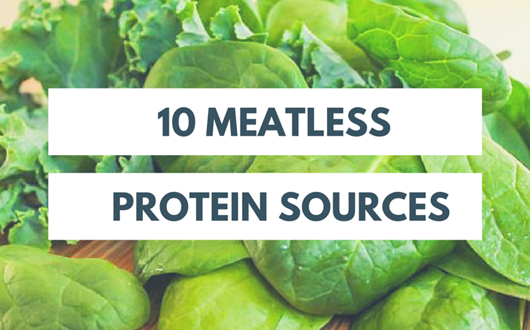
Meat is, without a doubt, the most popular form of protein, therefore, it is no wonder why so many people struggle to see how vegetarians and vegans get their protein.
The truth is, not all sources of protein are from meat. Instead, vegans and vegetarians get their protein from a combination of foods instead of just one source.
Combining foods such as legumes, vegetables, fruits, nuts, seeds and whole grains allows those who don’t eat meat to still get plenty of protein in their diets – while also supplying their bodies with plenty of other healthy nutrients.
Looking to increase your protein intake but sick of the same boring meat-filled meals? Below, we talk about 10 meatless sources of protein. Also see best tasting protein powders.
1. Chia Seeds
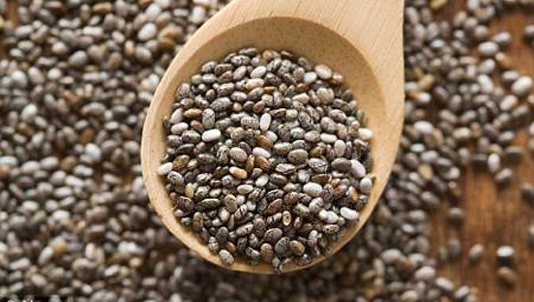
Chia seeds are incredibly healthy. Supplying four grams of protein per two tablespoons, chia seeds also contain all of the essential amino acids that our bodies need for proper functioning.
Chia seeds also supply heart healthy omega-3 fatty acids and fiber to help aid digestion and keep you feeling fuller longer. Sprinkle chia seeds over yogurt, cereals and salads or blend into smoothies!
2. Lentils
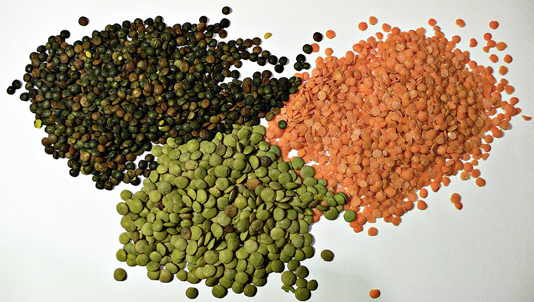
Lentils are an incredible source of protein with roughly 18 grams in one boiled cup. They also provide iron, supplying you with 37 percent of your daily recommended intake plus over half of your daily recommended dose of fiber.
Lentils are incredibly versatile, so you never have to worry about getting bored with them! Throw them into soups, salads, or mix together with vegetables to create a side dish. Want to get really creative? Mash them together with spices and create lentil patties – the perfect substitute for burgers!
3. Hemp Seeds
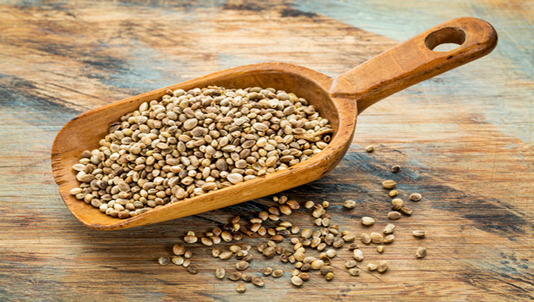
Hemp seeds provide a whopping 10 grams of protein in just two tablespoons. Alongside easily digested protein, hemp seeds also have anti-inflammatory properties which means they will aid in reducing inflammation. Hemp seeds also contain essential omega-3 fatty acids. Sprinkle them on to salads or yogurt for a fun texture and protein boost!
4. Black Beans
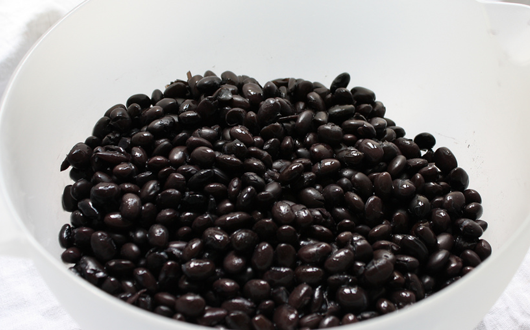
Typically recommended to diabetics due to their ability to maintain healthy blood sugar levels, half a cup of black beans contains 22 grams of protein. Digested slowly by the body, black beans help to keep you filling fuller longer with protein as well as fiber.
Add black beans to your diet through side dishes, stir-frys, or as the protein in a meatless dinner dish.
5. Almonds
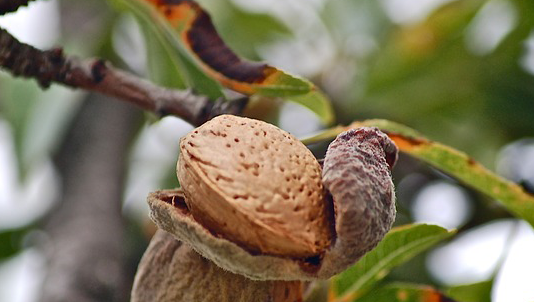
Almonds contain roughly 5 to 7 grams of protein per ounce, as well as healthy monounsaturated fat and fiber. The perfect portable protein source, almonds supply an incredible amount of fiber as well as calcium, iron and potassium.
Though the fat is healthy, almonds are still a high source of fats and the serving size should be kept low. Snack on a handful of almonds throughout the day for a snack or add chopped almonds to granola, salads, and yogurt.
6. Edamame
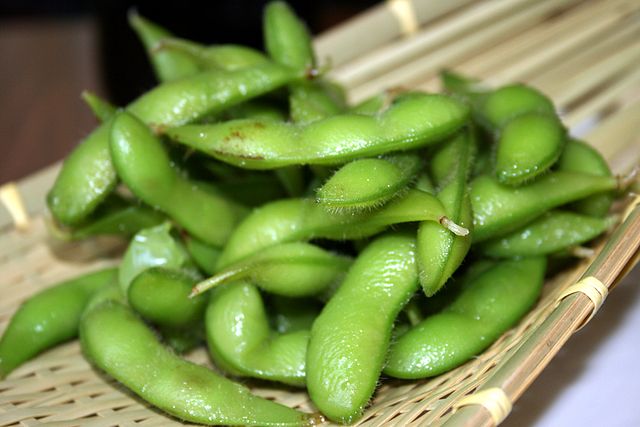
Edamame, or soybeans, are an incredible source of plant-based protein with a whopping 34 grams of protein per half cup.
That’s even more than chicken, which only contains 17 grams of protein per half cup. The only vegetable that is considered to be a complete protein, edamame is also full of healthy fats and nutrients.
Add edamame to stir-frys for protein or snack on a handful of them throughout the day.
7. Quinoa
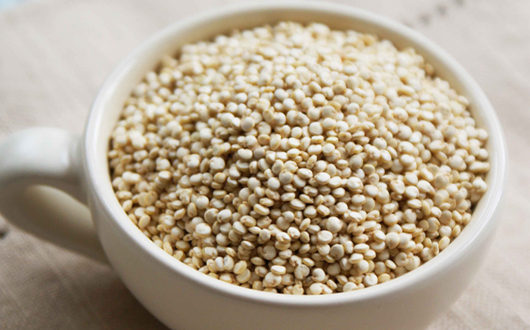
There’s been some confusion surrounding quinoa for quite some time but it’s nutritional profile is one thing that can’t be debated.
With 8 grams of protein per cup, quinoa is another complete protein that is also full of fiber, potassium and other essential nutrients.
Low on the glycemic index as well, quinoa is a naturally gluten-free food that can help aid in lowering blood pressure, cholesterol and blood sugar. Substitute rice or pasta for quinoa or stir cooked quinoa into soups!
8. Sunflower Seeds

Sunflowers might be small but they are mighty when it comes to protein.
With over 6 grams in just a quarter cup of hulled seeds, sunflower seeds also aid in reducing cholesterol levels and provide magnesium for better mood and reduced anxiety.
They also contain selenium, a nutrient which could help to prevent some cancers. Sprinkle sunflower seeds over salads, yogurt or simply eat by the handful.
9. Avocado

Though avocados don’t provide the most protein out there with just under 3 grams per cup, they do help add to your protein count as well as provide other healthy benefits.
A terrific source of healthy polyunsaturated and monounsaturated fats, avocados also supply more potassium gram for gram than a banana. Add sliced avocado to sandwiches, salads, or mash on top of toast.
10. Kale
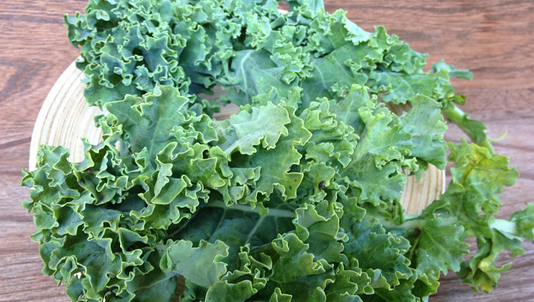
Though on the lower end of the protein scale with just over 2 grams per cup, kale’s lack of protein is easily overlooked when you take into account the other incredible nutrients this vegetable provides.
Extremely high in iron, kale actually provides more iron per calorie than beef. Kale also contains calcium, essential omega fatty acids and fiber. Fiber is a macronutrient, which means our bodies need it every day.
Meat sources of protein provide little to no fiber, while kale provides 5 percent of the recommended daily intake. Blend kale into smoothies or toss into a mixed greens salad to get your fill!
Conclusion
Meat isn’t the only source of protein out there. In fact, looking at this list of plant-based protein sources shows that it isn’t even necessary. Mixing and matching and combining the foods on this list will not only help you to reach your protein goals for the day, but will also help you reach your fiber intake as well as other important nutrient goals.
Enjoyed 10 Meatless Protein Sources? Share it with your friends so they too can follow the Superfoodsliving journey.
Share on Pinterest
